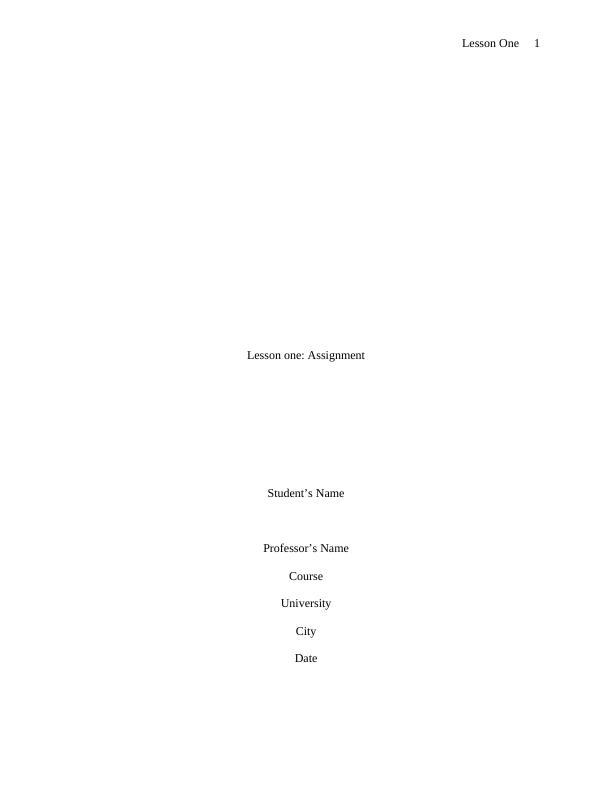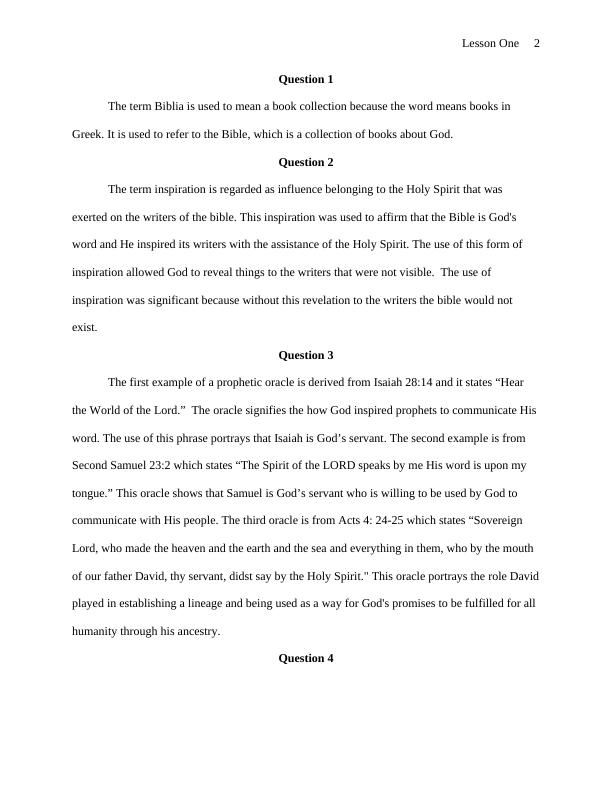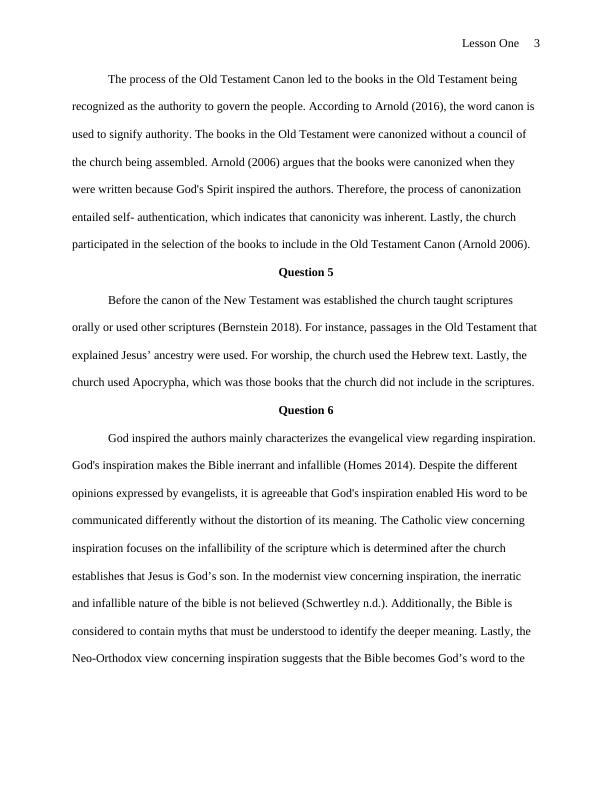Lesson One: Understanding the Bible, Canonization, and Translation
Added on 2023-06-11
8 Pages1740 Words168 Views
End of preview
Want to access all the pages? Upload your documents or become a member.
Understanding the Bible: Inspiration, Oracles, Massorates, and Translation
|4
|1118
|208
Concepts of Inerrancy, Infallibility and Authority of the Bible
|9
|2416
|254
The Biblical Canon: Its Origin, Transmission, and Authority
|8
|2491
|93
Comparison of Jewish and Protestant Canon Endings
|4
|940
|126
Introduction to Old Testament 2: Timetable, Interpretation, Development, and Traditions
|16
|3760
|186
Christianity | Assignment | MCQs
|39
|7771
|29



